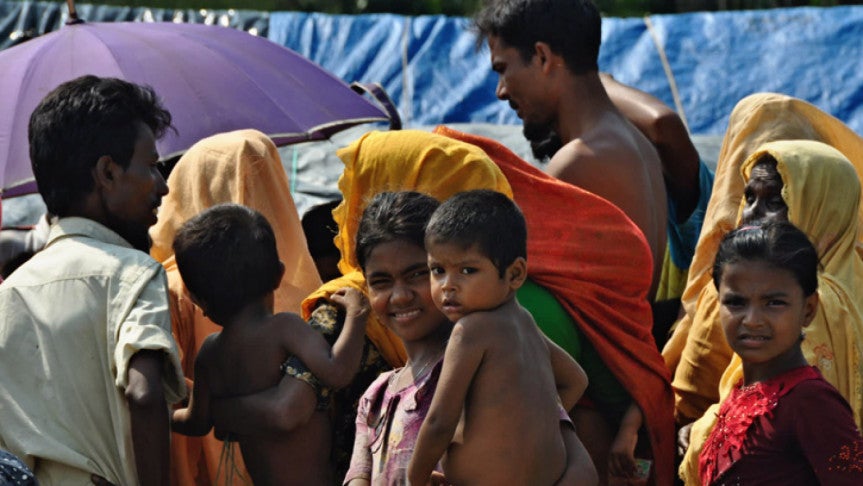Rohingya Crisis: Only 14pc of 2019 JRP funded so far

Dhaka: Regional representative of the Gulf Cooperation Council (GCC), UNHCR Khaled Khalifa on Monday said only 14 percent of the 2019 Joint Response Plan (JRP) for the Rohingya humanitarian crisis has been funded so far against US$ 920 million to meet the massive needs of Rohingyas and their host communities.
‘We’re hoping that the JRP will receive a higher level of funding than last year’s. Until now, the plan is funded by only 14 percent. This is a very small percentage,’ he told a press conference in a city hotel, reports the UNB.
More than 745,000 Rohingya people have fled Myanmar’s Rakhine State to Bangladesh since August 2017, escaping violence in Myanmar. Bangladesh is currently hosting over 1.1 million Rohingya people.
On February 15 in Geneva, United Nations aid agencies and NGO partners launched the JRP for the Rohingya humanitarian crisis seeking US$ 920 million to meet the massive needs. The 2018 JRP was funded at 69 per cent, or US$ 655 million received against US$ 950 million requested.
‘We hope this year we’ll reach 100 percent. That’s what we hope and aspire to,’ Khalifa said adding that every penny short in funding means less service somewhere that should be provided to refugees or members of the host communities.
He made it clear that the JRP does not target Rohingya people only but it also targets the host communities which is very important element to minimise social envy.
‘Unfortunately, most of the response plans around the world are underfunded. This means that refugees and people in need don’t receive the optimum service that we hope to provide them,’ said Khalifa while responding to a question.
It is true that the world is dealing with various competing emergencies and it’s a very sad situation that emergencies compete for funding, he said.
Earlier, representatives from the United Nations High Commissioner for Refugees (UNHCR), United Nations Office for the Coordination of Human Affairs (OCHA), European Commission, Saudi Arabia, Turkey, United Arab Emirates, Qatar and Kuwait visited Cox’s Bazar Rohingya camps as part their mission to Bangladesh on March 21-25.
Khalifa said they are trying to coordinate among the various donors of the crisis and trying to find complementarity and encourage all donors to work together in order to provide better support to the JRP.
‘We’ve seen lot of progress in Cox’s Bazar on the ground. The situation is much better compared to last year’s,’ he said.
The delegation members observed and assessed firsthand the humanitarian needs and challenges on the ground of both the Rohingyas and the host communities.
They met interlocutors from the government and United Nations to understand ongoing and emerging needs towards the 2019 Joint Response Plan.
OCHA assistant secretary-general for humanitarian partnerships with the Middle East and Central Asia Rashid M Khalikov, European Commission director of Sub-Saharan Africa, Asia, Latin America and the Pacific Androulla Kaminara, assistant supervisor general of administration and finance of King Salman Humanitarian Aid and Relief Centre Dr Salah Fahad Al Mazroa and Ambassador of Kuwait to Bangladesh Adel Mohammaed Hayat were, among others, present at the press conference.

 NTV Online
NTV Online




